#author psychoanalysis
Explore tagged Tumblr posts
Text
Alright let’s do this, I have a handful of bastards kicking around in my head that I need to do something with
Authorial Psychoanalysis OC Asks
You read that painfully phrased title correctly, today we're going to ask about your OCs and use them to psychoanalyze you!
😇- What is the best quality this character shares with you?
😈- What is the worst quality this character shares with you?
👥- Which of your OCs' relationships (platonic or romantic) most resembles one of your own?
❔- Which nominally "good" character do you like the least? (as a person)
❓- Which nominally "bad" character do you like the most? (as a person)
❕- Which nominally "good" character do you enjoy writing the least?
❗- Which nominally "bad" character do you enjoy writing the most?
😄- Would you be good friends with this character?
🥰- Would you date this character?
🍕- What "favorites" does this character share with you? (Favorite food, color, weather, etc.)
🎭- Are there any characters you as the author don't really understand? Why?
⚔️- Which character shows anger in the same way as you?
😭- Which character shows sadness in the same way as you?
❤️- Which character shows care in the same way as you?
🎉- Which character shows joy in the same way as you?
💩- How many of your characters have self-esteem issues and are you aware that we all enjoy your presence on the hellsite?
👁️- Is this character based off someone you know in real life? Who?
🦴- How does this character process death?
Pretend Legal Mumbo Jumbo: By answering one of these asks you give your consent for all other participants to attempt psychoanalysis (or satirical psychoanalysis) in the replies and reblogs, so long as this analysis is respectful and kind. You agree that PhoenixRadiant is not legally responsible for any therapy, epiphany, good vibes, bad vibes, dumb jokes, witty jokes, or other phenomena these answers, asks, and analyses may cause.
And now to tags the mutualses: @somethingclevermahogony,@theidealistcynic,@agirlandherquill, @the-ellia-west,@smudged-red-ink,@aestheic-writer18,@pastellbg, @tildeathiwillwrite,@illarian-rambling,@baconandeggs-25, @thewritingautisticat,@aalinaaaaaa,@elizaellwrites
221 notes
·
View notes
Text
having been interested in religious themes in taylor's music before, i just was kind of startled after listening to ttpd (minus the anthology) for the first time in a while and realizing she has two very similar sentiments expressed wrt religion in different songs on this album: "you ain't gotta pray for me" in bdilh and "your good lord doesn't need to lift a finger" in i can fix him. they both refer to this same scenario of people disapproving of a romantic partner and the narrator saying "no, actually, your prayers and invocations of god are unnecessary, i've got this under control."
there's almost a sense of being above god, or at least not needing god, which fits with the idea from the prologue of this relationship being a "manic phase." this also possibly represents the natural progression from the religious themes in would've, could've, should've, in which the narrator feels forsaken by god, or like her experiences have made her turn away from god...it kind of makes sense that a person would then progress to "well fuck you, i don't need you anyway."
#trying to refer to a narrator rather than taylor herself at least in my more serious analysis posts#bc that's how they told us to do it in poetry class in college lol#don't assume the narrator is the author!#the narrator is she/her though hashtag feminism#this DOES say interesting things for taylor psychoanalysis though i'm just not getting into that here#text tag#tswift#ts analysis#the link is to me and antifataylorswift's analysis of religious themes in her work pre-ttpd#i'm sure there are other religious references in ttpd these are just the ones that jumped out at me
61 notes
·
View notes
Text
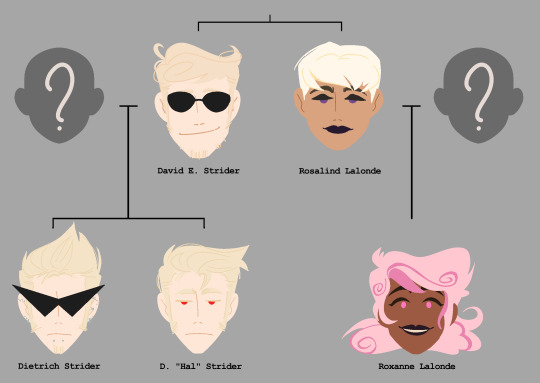
more of the cam cafe au, this time with strilonde family dynamic
so dave and rose are siblings and they both had their kids very young (other parents dipped out as soon as possible). they helped each other out with raising the kids while working on their careers, so the trio grew up very close to each other, roxy often acting as a mediator between dirk and hal as they were on each others cases basically since birth lmfao
gonna do the j squad next but holy shit is their family tree... complex
#cam cafe au#homestuck#dave strider#rose lalonde#dirk strider#hal strider#lil hal#roxy lalonde#homestuck au#strilondes#daves a movie director and rose is an author like in the alpha timeline canon#that household would be pure chaos holy shit#dirk and hal teaming up with auntie rose to torment dave with psychoanalysis bullshit lives rent free in my head#daves still gets called bro in this au like thats obvi#also the albino gene runs strong in the strider part of the fam#always loved that fanon#like striders wearing the shades because they legit need them bc of the light sensitivity and that theyre probably corrective-#-because they have horrible eyesight is hysterical#doctors note to be cool like be fr
220 notes
·
View notes
Text

Woman with a Parasol by Claude Monet (1875), National Gallery of Art, Washington D.C.
Psychology of Authority and Autonomy
In this painting, the elevated figure of the mother becomes a symbol of established authority. The parasol she holds acts as a protective barrier, shielding her from the vast sky—a classical representation of paternal authority. The child (the observer), positioned below and gazing upward, is caught between these two forces: the maternal (gaze) and the paternal (sky). The child in the painting serves as a mirror for the observer, drawing them back into their own childhood, as though the painting itself reflects and reconnects them to that formative time. The parasol, while symbolic of nurturing, also prevents the child from accessing the sunlight, which represents the full wholeness and validation often sought in life. This nuanced dynamic evokes the Oedipal complex, where a leader, much like the child, is motivated to achieve authority but continually feels a subtle disconnection from true paternal validation, no matter how close they come.
For a leader, this reflects an unconscious drive to succeed and seek wholeness through external validation. Yet, much like the child under the parasol, this wholeness remains elusive, leading to a constant tension between desire and authority. It hints at a deep internal conflict, where the leader is constantly striving for a sense of completion, but finds the path obscured by boundaries formed in early life, leaving them perpetually seeking but never fully satisfied.
The Sky as a Symbol of Ambition and External Pressure
The expansive sky represents more than just a background; it embodies societal expectations, market forces, and regulatory pressures that loom over the figures below. The absence of the sun, which would traditionally bring warmth and completeness, further emphasises a sense of stunted development, as if growth has been halted or interrupted, leaving a lingering feeling of incompleteness or stagnation. The leader who resonates with this painting might feel the weight of these external forces, continually striving to balance their personal ambition with societal demands. The parasol symbolises the temporary shields leaders erect to navigate these overwhelming expectations, but its fragility suggests that this protection cannot last forever.
For someone displaying this painting in their space, it symbolises a powerful psychological message: success and authority often come with an unrelenting pressure from above, and despite the shields we build, external forces inevitably shape our trajectory. This painting reflects the subtle battle between the desire for recognition and the weight of societal judgment, creating a space for reflection on how these pressures affect one's leadership style and strategic vision.
The Unconscious Desire for Control and Completion
The child, firmly grounded but gazing upwards, embodies the tension between instinctive desires and the unattainable completeness found in authority and control. The maternal figure, while protective, acts as a barrier preventing the child from attaining paternal validation. The parasol acts as a shield from the sunlight in the painting, with the sun symbolising paternal approval. It creates a barrier, preventing the figure from fully receiving the warmth and validation associated with the father’s presence. Leaders, like the child, may be driven by the unconscious desire to merge personal ambition with external validation, but they remain trapped in the cycle of pursuing authority without ever achieving the emotional wholeness they seek.
This painting powerfully reflects a psychological narrative that can play out in corporate and financial leadership. The persistent striving for success can often feel like chasing something elusive—external validation, whether through financial gains, public recognition, or authority—yet never fully feeling secure in that success. The parasol's role as a boundary reminds us that even when protection is present, it also creates distance, leaving the individual feeling both supported and isolated.
Leadership and the Pursuit of Validation
In this context, the painting speaks to leaders who find themselves in a perpetual state of striving—seeking approval from markets, superiors, and external forces, but feeling that something is always just out of reach. The absence of the sun reinforces this theme of incompleteness, suggesting that even at the peak of success, leaders may feel that their efforts lack the full validation they subconsciously desire. The child’s gaze toward the mother symbolizes the emotional tug of seeking nurturing and control, but ultimately being left in a state of wanting, never fully satisfied.
For a collector or executive drawn to this painting, it is a reminder of the psychological tensions inherent in leadership—balancing ambition, authority, and the perpetual quest for recognition. This artwork speaks to the unconscious desire to bridge the gap between personal achievement and external approval, while subtly reflecting on the costs of never fully attaining that sense of wholeness.
#aesthetic#art history#psychoanalysis#artwork#contemporary art#fine art#modern art#art gallery#psychology#art collection#claude monet#beautiful women#woman#emotional depth#emotions#art collectors#impressionism#mother#mom#loving#father#art analysis#authenticity#authority#forgiveness#purpose#understanding#values#acceptance#washington dc
22 notes
·
View notes
Text
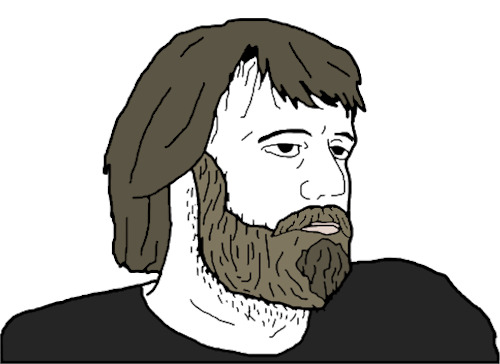
Title/Name: Slavoj Žižek, popularly known as 'Žižek', born in (1949). Bio: Slovenian philosopher, director, professor, senior researcher, cultural theorist, and public intellectual. He primarily works on continental philosophy (particularly Hegelianism, psychoanalysis, and Marxism), political theory, film criticism, and theology. Country: Slovenia Wojak Series: Chad (Variant), Feels Guy (Variant) Image by: Unknown Main Tag: Žižek Wojak
#Wojak#Žižek Wojak#Žižek#Zizek Wojak#Slavoj Zizek Wojak#Slavoj Žižek Wojak#Slavoj Žižek#Slavoj Zizek#Philosopher#Politics#White#Gray#Marxism#psychoanalysis#Feels Guy Series#Chad Series#Feels Guy Wojak#Chad Wojak#Zizek#Writer Author
41 notes
·
View notes
Quote
The privilege of a lifetime is to become who you truly are.
Carl Jung
#carl jung#Carl G. Jung#quotes#life#wisdom#philosophy#psychology#psychoanalysis#privilege#who you truly are#writer#write#author#writing
198 notes
·
View notes
Text
Am I the only one who does not really get all those takes which read young Coriolanus Snow as an epitome of toxic masculinity and keep saying “OMFG, Lucy Gray, yes, girl, run away from him!1!!1”?
Like, I don’t mean that Coryo is not toxic. He, very obviously, is. That’s how he is meant to be.
But it seems to me that many people don’t get that the whole point of “The Ballad of Songbirds and Snakes” is to show how did it come to this, how Coryo became the way he is. Suzanne Collins literally makes a reference to tabula rasa - a concept in the Western Enlightenment philosophy, which, to quote the Free Dictionary, is:
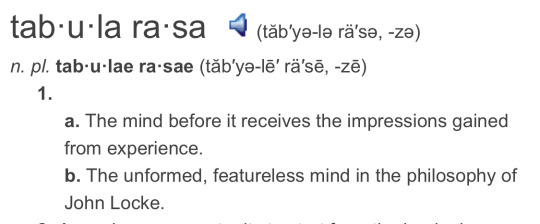
This is the first. The point is to ask the reader: how much of a “clean slate” Coryo is as a person? How much does his experience and background shape him? How “free” is his will when he is continuously being shaped by everything around him?
Secondly, idk, did people realize that the characters of Coryo and Lucy Gray are constructed as personifications of the “civilization vs nature” conflict? A conflict which is, nomen omen, also common in Western philosophy in the Enlightenment era?
In short, Coryo is the personification of civilization - order, science, lack of spontaneity, etc. Meanwhile, Lucy Gray personifies nature - she is spontaneous, artistic, sensitive and trusting (even despite the fact that before being with Coryo she was in a toxic relationship). She believes in the inherent goodness in people, while Coryo clearly does not. And both of these two stances also derive from their upbringing.
Like, coming back to their background.
Lucy Gray, despite coming from an extremely underprivileged background and being in a toxic relationship prior to the plot of the book, seems to have had loving and trusting people around her. Most of the time, her background reinforced the story “you are good, worthy, and loved”. And this way she grew this attitude in her mind. She had developed a sense of self-worth, her own standing, her own “stone”, which saved her even when the odds were not on her side.
Meanwhile, Coryo came from a fallen high-class family embedded in Capitol’s politics - which in itself is not a good place for proper emotional development. In such an environment, you constantly have to prove your worth. You don’t matter on your own. If you don’t keep fighting, you are worthless. In a sense, you are what you do. And, to add fuel to the fire, Coryo had to hide the true economic standing of his family and almost constantly be on alert, because, in reality, everyone around him was a back-stabbing b*tch ready to hurt him. Wouldn’t you develop trust issues in this situation?
And yes, I know that many people here will mention Tigris, I know. But how much time does Coryo really spend with his cousin? How much time, ability, and opportunity does Tigris have on reversing the poison that is poured into her cousin’s head when he is outside of home, e.g. at school?
Idk, maybe it is just my experience (this is going to get private now lol), but when I read about Coryo, I found his person cruel, but weirdly relatable.
That mostly stems from the fact that I too have an experience of growing up in a very toxic environment that gave me trust issues. And it is not that I did not have a person like Tigris around me. I did, when I saw them for maximum 1-1.5 hour per day, because we both were overwhelmed with work and did not have time to talk and bond together and undo the toxicity that was constantly reinforced in my head when I had other stuff to do. Similarly to Coryo, I too had to stay in a constantly back-stabbing, non-empathetic environment, which constantly reinforced the fact that apart from very few people, I could not trust anybody. Because if I do - they will use that to hurt me in the end. So, I thought to myself that I have to be constantly on guard. When entering any friendships, a coping mechanism for me was to think of these people in the categories “what they can offer/do for me” instead of “who is this person for me as a person”. Because, you know, in case they stab me in the back, I still get something out of it.
This led to the fact that even when I supposedly could let my guard down - that is, I entered my first romantic relationship - letting this guard down felt unnatural, wrong. And it led to - tada! - wanting to possess the one I loved. Because no, I could not trust the fact them, that was not enough. I did not trust them enough to believe that they wanted to stay with me because they wanted to.
And damn, seeing that Coryo had similar issues was so… therapeutic. He just could not let go, give space and trust the woman of his life. And paradoxically, this is what largely contributes to her ultimately leaving him without a word.
The fact that Suzanne Collins understands this pattern (and most likely heavily researched it) makes me respect her so much more.
(Of course, I am in therapy. I don’t plan to repeat these behaviours anymore, I don’t want to end up like Coryo 😅 But I’m just saying that it’s still hard to unlearn these patterns years after leaving the original toxic environment because my brain got wired at some point to reinforce this “You should trust no one” story 24/7.)
And no, before you accuse me of “defending” Snow’s actions, I stop you here. I completely, fully acknowledge the fact that Coriolanus Snow, in the end, does evil things and is a truly evil person.
But what I am against is reading TBoSaS as just a story of a toxic romance between a guy embedded in toxic masculinity and a sensitive girl that he just wants to possess BeCAuSe hE Is ToXIc. This is just extremely shallow, and completely contradicts the point that, I believe, Suzanne Collins is trying to make here. And her point is still scary, if not more than just labelling Coryo as masculine in a toxic way.
The society also largely contributes to creating monsters. We create these monsters.
#suzanne collins#suzanne collins is one of the only mainstream authors these days who clearly writes for purpose rather than profit#the ballad of songbirds and snakes#ballad of songbirds and snakes#tbosas#coriolanus snow#coryo snow#lucy gray#lucy gray baird#the hunger games#catching fire#the mockingjay#the hunger games trilogy#about me#am I doing a psychoanalysis of my favourite characters? maybe#I respect Suzanne Collins for her effort so much more
113 notes
·
View notes
Text
What Rafal's Physical and Immaterial Coolness Could Represent
❄️ ❄️ ❄️ ❄️ ❄️ ❄️ ❄️ ❄️ ❄️ ❄️ ❄️ ❄️ ❄️ ❄️ ❄️
As a forewarning, this post is more... observational and has less of a singular, hard-hitting point to it. (Also, see Conan Gray's "Fight or Flight" song for reference, as, most of this post occurred to me in relation to that very song, if you interpret parts of it as representing Rafal's internal monologue on the subject of Rhian's substitutes during Rise.)
Also, this is a long post, so it's going under a cut.
⸻
Why is Rafal's immediate response to personal hurt avoidance of all things? Isn't that kind of a heightened, overly instinctive, clearly "uncool" reaction to have?
And yet, strangely, we still classify it as in character for him. His leaving was, arguably, the most iconic and true-to-self thing he did across both prequels. So, I want to ask: why is that?
That he just up and left seems apathetic and could be construed as part of his cold, cool nature, of course, but still—when we look at what his reaction truly is: he chose flight.
(Flight as opposed to the alternative fight, freeze, or fawn responses.)
FLIGHT! Like, can you believe it? This man, who's so headstrong and willing to stare down anything, chose flight. Let that revelation sink in. (Maybe this is more obvious than I think, but I can't believe I hadn't thought of this weird discrepancy before. Flight!)
Anyway, to explain Rafal's reaction to (potentially) having been emotionally hurt by his argument and corresponding bet with Rhian at the start, I'm going to reference a theory from an old post, as it has suddenly become relevant once again.
In short, the idea is about how Rhian's expressions of authority are personal while Rafal's are nearly always impersonal. Rhian is a master of social dynamics, considering how deftly he lies in Fall to gain favor from others and influence their views of him. And, this makes sense because he once cared so much about how he was perceived, as we take into account his original self-consciousness and his high-minded, conscionable tendencies from Rise. He is the one who wields interpersonal power as Rafal, correspondingly, wields impersonal (often more tangible and brutish) power.
If anyone would like more elaboration, here's an excerpt from that old post:
The strange thing is, in Fall, Rafal admits to having conceded a lot of the time to Rhian in the past, in the face of smaller, pettier arguments, a trend which also represents his yielding to Rhian's (supposedly nonexistent) authority in the early days. That tendency seems self-contradictory of Rafal, but perhaps, even Rafal's authority is situational. He's capable of exercising it over everything and world, but not over his own brother. He can't rein Rhian, the inevitable force, the "fatal" (to invoke both death and "fate") tides of change, the Prime Mover, in. Meanwhile, Rhian is the inverse of that. Rhian cannot exercise authority over everything and the world, but he can do so over his own brother. Besides, Rafal, often by sorcery or by outright manhandling, manipulates and exerts his physicality over others and his environment while Rhian rarely does. And yet, Rafal (from what I remember) never so much as lays a hand on Rhian during Rise (in Fall, everything changes and escalates). I don't yet know why this is, but I think this observation is true most of the time. At least, I haven't thought of any exceptions yet. The working hypothesis I have is that Rhian (being the brother who chose to stay in the comfort and limited confines of the home, according to the Bettelheim text's ideas) only initially felt comfortable to do anything there. To act, and exercise his authority in an intimate, narrow, personal way. By contrast, Rafal (the more worldly, well-traveled, and inconstant brother) wants to gain independence from their stifling "home" life, under the Storian, and, as a result, upon his return, could've felt like a stranger in his own home and with Rhian (who's also changed in his brother's absence regardless). Thus, while Rafal can certainly exercise his authority impersonally, he doesn't feel at ease exercising authority over the familiar because it could be too close for comfort, too unsettling, unsettlingly different and the same, like he can't shed the disbelonging that drove him out of the fairy-tale construct of the "home" as a safe, childhood refuge in the first place—when Rhian first questioned his very core purpose and Evil's existence.
Thus, again, Rafal's ability to wield power is, without exception (I think), always impersonal.
The closest he comes to Rhian's brand of power, which involves acting on a smaller scale or more on an individual, one-to-one level and being intimate, are his interactions with Hook and Midas. And, despite those seductive instances, Rhian is still the master of all the smaller scale exploits, like with Hephaestus and the Pirate Captain rescuing him from the Doom Room where he'd been "abandoned," whenever these acts are in fact intentional.
Yes, Rafal possibly unwittingly, by being more open with his victims, has broader appeal, but that side of him isn't all pure strategy, done with intentionality. Part of it is just how he is. Rhian, unlike his brother, strikes at something inside people that doesn't just rely on scare tactics and classic, one-dimensional intimidation. In Fall, he gains a creepiness factor and the ability to lie convincingly, importantly, without blushing.
Also, I want to commentate a little on Rafal's novel instance of blushing during Fall, which was quite unlike his usual self.
First, here's some context about physical coolness, the socially-perceived "cool factor," and how blushing can only ever be sincere and is valuable because it is involuntary from Quiet by Susan Cain:

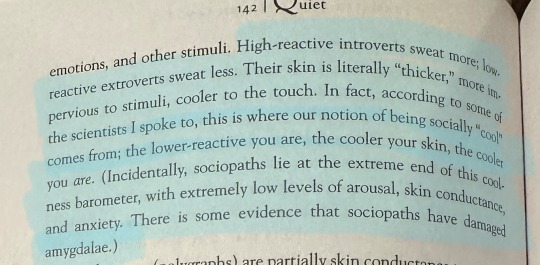
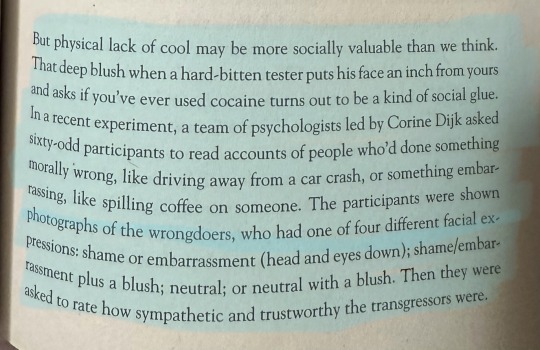
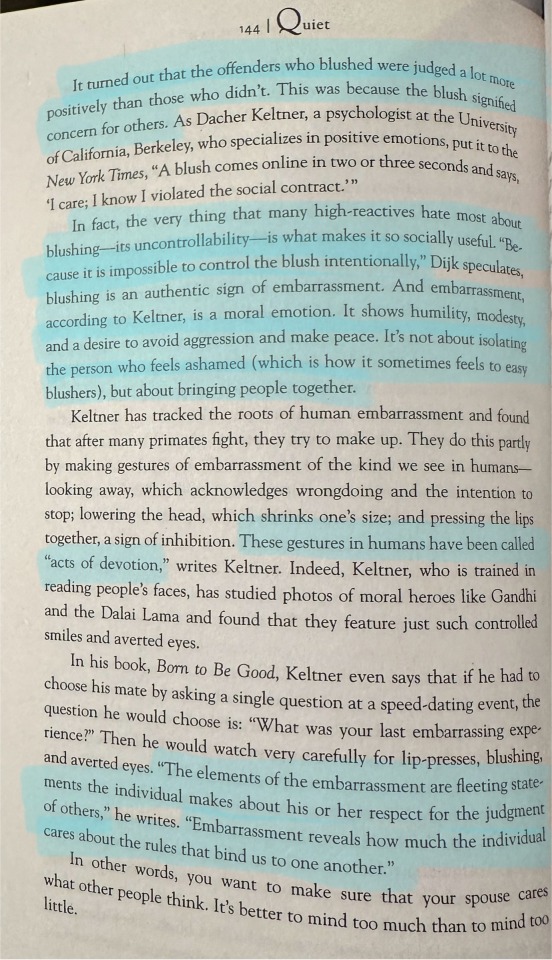
I suspect Fall aimed to establish Rafal as more "trustworthy," and as more subject to having humility thrust upon him, than he had been in Rise, when he had previously been insurmountable.
Yet then, after that "invulnerable," unaffected precedent he set about himself, he started blushing, signaling that he suddenly began to care, and that the opposite was true of Rhian as Rhian changed throughout Fall and became more immune to his old, constant feelings of shame that originally must've formed his moral compass.
Also, Rafal gets more points towards being an actual sociopath! He just partially lost his former, low-reactive temperament when he turned "Good."
One other thought of note:
Has anyone ever headcanoned Rafal as having an avoidant attachment style? To complement that, Rhian would probably have an anxious attachment style.
Essentially, the traits of these attachment styles are Rafal and Rhian personified.
Rafal:

Rhian:

#school for good and evil#rise of the school for good and evil#fall of the school for good and evil#rafal#rafal mistral#rhian#rhian mistral#sge#sfgae#tsfgae#the school for good and evil#rotsge#rotsfgae#fotsge#fotsfgae#my post#my analysis#my theories#my headcanons#observations#psychology#psychoanalysis#power#authority#attachment styles#avoidant attachment#anxious attachment#anxious avoidant#cool#coolness
15 notes
·
View notes
Text
Every man has some reminiscences which he would not tell to everyone, but only to his friends. He has others which he would not reveal even to his friends, but only to himself, and that in secret. But finally there are still others which a man is even afraid to tell himself, and every decent man has a considerable number of such things stored away. That is, one can even say that the more decent he is, the greater the number of such things in his mind.
Fyodor Dostoevsky, Notes From Underground; 1864.
#philosophy tumblr#philoblr#russian novelist#russian literature#author#philosopher#psychologist#fyodor dostoevsky#the unconscious#metaethics#jungian psychology#psychoanalysis#dark academia#life quotes
35 notes
·
View notes
Text
loving the Rousseau and Sartre and Luther bashing in Voltaire & Erasmus: Why They Still Matter
#idk if i love the author's approach to psychoanalysis#but at least he's up front that it's just one perspective and that it's not all the way reliable
2 notes
·
View notes
Text
reading a psychological article that seems legit in the abstract and then the second it gets to the background bro starts talking about Freud and oedipal urges and phallic strengrh and blahblahblah

#it's for a literature class tho and it has been so hard to find anything else with themes relevant to this novel so we must make do. was the#extra 5% for writing on a book no ones ever heard of actually worth it when my peers got to just use straight up scholarly articles on the#novels and authors themselves while I am stuck with History of (suburb it's set in) and article on The role of the father in psychoanalysis#.txt
4 notes
·
View notes
Text
Introducción a la psicología: Descubriendo el mundo de la mente y el comportamiento
¡Bienvenidos a mi blog de psicología! En esta primera publicación, quiero llevarte de la mano a través de los fundamentos de la psicología y presentarte a este fascinante campo de estudio. ¿Estás listo para adentrarte en el mundo de la mente y el comportamiento? ¡Vamos a empezar!
La psicología es la ciencia que busca comprender cómo pensamos, sentimos y nos comportamos. Explora los procesos mentales y los comportamientos humanos desde diversas perspectivas, y nos ayuda a entender qué nos motiva, cómo aprendemos, cómo nos desarrollamos y cómo interactuamos con el entorno.
Dentro de la psicología, existen diferentes enfoques teóricos y áreas de especialización. Algunas de las principales teorías incluyen el conductismo, el psicoanálisis, la psicología cognitiva, la psicología humanista y la psicología del desarrollo. Cada una de ellas ofrece un marco teórico y metodológico único para abordar la comprensión de la mente humana.
En este blog, exploraremos temas que van desde el bienestar emocional y la salud mental hasta el desarrollo personal y las relaciones interpersonales. Aprenderás estrategias prácticas y herramientas basadas en la evidencia que te ayudarán a mejorar tu vida cotidiana y a cultivar relaciones más saludables.
La psicología no solo es relevante para los profesionales en el campo, sino que también puede ser una fuente valiosa de conocimiento para cualquier persona interesada en comprender mejor a sí misma y a los demás. No importa si eres un estudiante, un profesional, un padre o simplemente alguien que busca crecer personalmente, este blog está diseñado para brindarte información útil y aplicable.
Me entusiasma compartir contigo mis conocimientos y experiencia en psicología a través de este espacio. Espero que te unas a esta emocionante travesía, donde exploraremos juntos los aspectos fascinantes y prácticos de la mente humana.
¡Mantente atento(a) para la próxima publicación, donde discutiremos técnicas efectivas para manejar el estrés y la ansiedad en la vida diaria! Si tienes alguna pregunta o tema que te gustaría que abordemos, no dudes en dejar un comentario.
¡Hasta pronto y gracias por unirte a este viaje de autodescubrimiento y crecimiento emocional!
3 notes
·
View notes
Text
Trust me bro I'm not afraid of sincerity and definitely don't have a problem with lampshading *all fics are either (a) Crack, (b) take place in the POV character's imagination, or (c) both*
#usually I scoff at fandom psychoanalysis but ouch#like I'm probably genuinely a crack author at heart but it's time to burst this protective bubble of insincerity#been meaning to get back into the Rebecca fandom with a serious fic#but it's a servant's POV and needs research i don't have time for atm#like i'm deep into “fandom: servants who wrote memoirs” (iykyk) but those aren't fully representative imo i need more#echo chamber post
0 notes
Text
psychoanalysis is actually so silly. i should look into it properly some day
#im reading a thing about dreams bc my homestuck binge was interrupted by psychology nerdness#and it's a psychoanalysis thing sooo#also recently i saw a cool psychoanalysis thing about how transgemderism can be caused by trauma and how that's NOT a bad thing#and i should read one of the authors' other books about likee trauma and shit which seems interesting but not a hundreeeeed percent what it#about#like psychoanalysis gets a bad rep bc of freud and the sheer amount of bigots in the field#but it's a really interesting in between for psychology and philosophy???#likee think abt it#philosophy -> psychoanalysis -> cognitive psychology -> biological psychology -> neuroscience#i like neat things like that :)
1 note
·
View note
Text
Wendy: I'm scared I want to leave
Jack: I will now distract you with sex
Wendy: now that sex is out of the way do you think our son is going insane
Jack: now I'm no psychiatrist but [hugely mentally ableist shit] and [author squarely psychoanalyzing his own novel for the audience]
#the shining readthrough#not really a fan of authors doing that tbh. I get Jack distracting her with sex (that's very in character for him) but the psychoanalysis of#their own son? after that shit the nasty doctor said? jfc#you don't 'turn' autistic from schizophrenia jesus FUCKING Christ
0 notes
Quote
Everything can be taken from a man but one thing: the last of the human freedoms--to choose one's attitude in any given set of circumstances, to choose one's own way.
Viktor Frankl
#viktor frankl#frankl#quotes#life#wisdom#philosophy#psychoanalysis#psychology#logotherapy#meaning#the pursuit of meaning#art#artist#books#author#writer#writing#write#ideas
31 notes
·
View notes